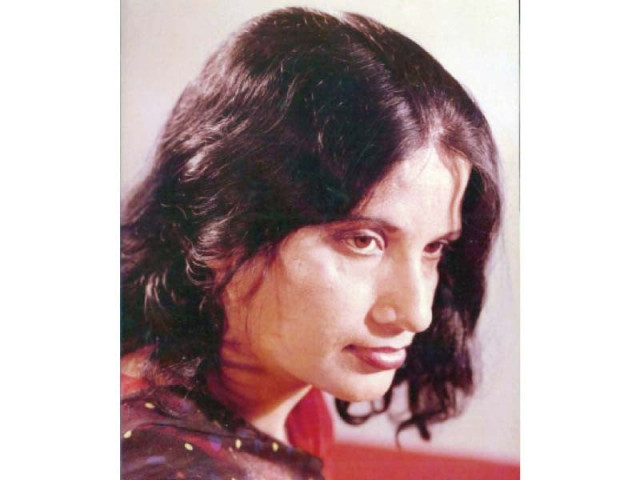Remembering activist Abeda Iqbal Azad
Progressive poet, writer, continues to inspire generations

Renowned activist poet, writer, journalist and a significant author Abeda Iqbal Azad sparkles and brightens up our mind with her prose and poetry still 11 years after her passing on April 20, 2012. She is hailed as an activist poet and fiction writer who did more than any other to create a pro-women consciousness through her work.
Both the influence and admiration of her work have only grown since her death, in large part due to her polite poetry and the myriad ways she has enthralled readers, poetry lovers and other poets in their creative work. It's tremendously moving to read her works with an awareness of her unceasing struggle to make those works serve her cause.
At the same time, she has decorated her style by using certain artistic devices such as structure, rhyme, and other patterns to be true to itself, and to create a bit of space for the 'literariness' of her poetry.
A poet who fills the heart with emotional verses
In describing Abeda's gift and greatness, Urdu literary critiques believe that Abeda Iqbal was simply a great poet. The author of 'Aasman' and 'Hijab' was modest, and bold, and she was a nightingale who filled the hearts with her emotional verses. One just does not need to overdo her legacy.
Abeda is most remembered for her poignant poems. She truly lived with her dreams drafted and crafted through her life. In her poem Jirga Abeda denounces honour killings and emerges as a feminist as she wrote in her poem Jirga 'Shah Latif tumhari sohni aaj bhi dubo di jati hai'.
Many of her poems paint a wider space for her fondness for nature.
Power of words
Abeda Iqbal Azad, as a journalist has been variously described as the icon of fearlessness, a rebel, determined and even an unconventional born to a Businessman father in Dhaka Bangladesh, former East Pakistan. Her individual involvement to the wide range of Urdu literature was remarkable creations as compared to any other women writers of this time.
With a brief career that she started when she migrated into Karachi after her marriage to Iqbal Azad Syed. Abeda Iqbal's write-ups analyse the sufferings of the people of marginalised class.
Abeda's book of poems 'Aasman' and two popular columns, 'Aaina' and 'Chehre' took her to fame. She worked with many leading newspapers of Pakistan.
She also wrote 'Dateline Dhaka", her 'feature series was a historical record of '1971 Dhaka fall', which caught the attention of academics, scholars and writers. Her works include translation of Saadat Hasan Manto and Khalil Gibran. The importance, honesty and power of these words resonate today more strongly than ever.
Published in The Express Tribune, April 25th, 2023.



















COMMENTS
Comments are moderated and generally will be posted if they are on-topic and not abusive.
For more information, please see our Comments FAQ